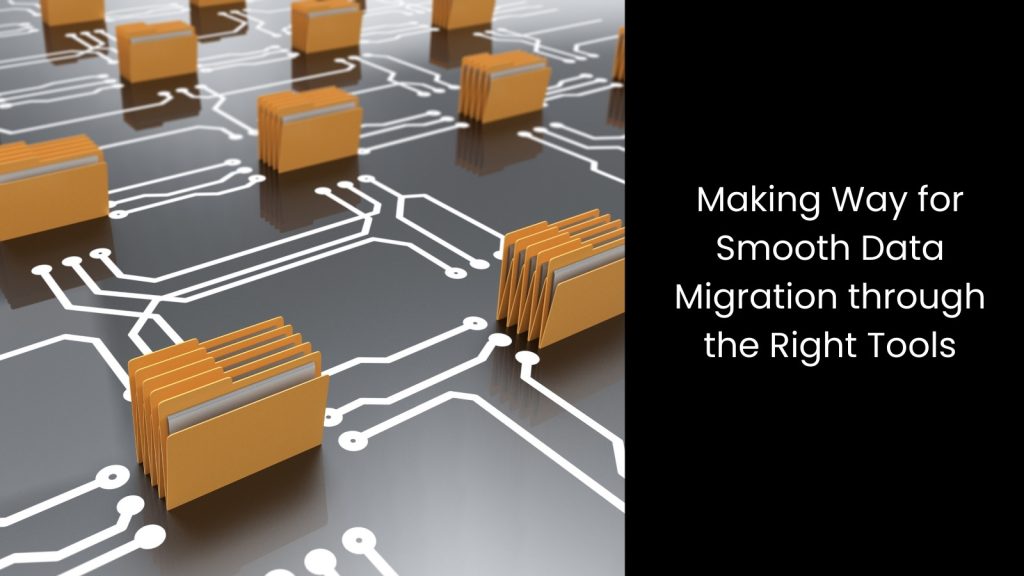In this article, we focus on the role of data migration in the manufacturing industry.
What is Data Migration?

- This basically means moving data from one system, storage, or format to another, usually when companies upgrade technology or switch to newer systems.
- Then, why is there so much conversation about this within the manufacturing industry Singapore? In the manufacturing industry, data migration helps to transfer essential information—such as production schedules, inventory records, and supply chain data—into advanced platforms that handle large amounts of data more efficiently. Manufacturers perform data migration to ensure that their data stays accurate, accessible, and secure, especially as they grow and adopt newer technology.
- Moving data from old systems to new ones enhances data consistency, reduces redundancies, and makes operations smoother.
- During data migration, companies usually clean up their data by removing outdated information and duplicates, which improves data quality. This process helps streamline business processes by creating a single, unified database for easy access to vital information, supporting better decision-making and operational efficiency.
Top Reasons Why the Manufacturing Industry Needs Data Migration

Limitless Integration with Modern Systems
We know that manufacturing involves complex processes like production scheduling, inventory management, and quality control, which require accurate, up-to-date information. Data migration moves critical data from outdated systems to modern platforms that support new technologies such as the Internet of Things (IoT), AI, and machine learning (ML).
When manufacturers integrate data into these advanced systems, they gain the ability to analyse large volumes of data in real time, make better decisions, and quickly identify and fix production issues. For instance, IoT sensors can gather data directly from machines on the factory floor, feeding this information into a modern system that can predict maintenance needs and prevent equipment failures.
On the other hand, data migration also opens the door for manufacturers to automate repetitive tasks, freeing up human workers to focus on more complex activities. Also, when manufacturers integrate their data into a single, unified platform, they reduce information-related issues, making it easier for different teams to access the same data and collaborate effectively.
Promising Data Accuracy and Quality
When data becomes outdated or contains duplicates, it creates errors and inconsistencies, which can disrupt workflows and lead to costly mistakes.
This is where the migration eliminates outdated or duplicate data, ensuring higher data accuracy and consistency across systems, which is crucial for manufacturing precision. When it allows transferring data to a modern system, manufacturers can clean up their data, removing inaccuracies and making sure all information is current. This cleanup process means that workers and automated systems rely on trustworthy data. The latter enables them to produce quality products that meet industry standards and customer expectations.
In one way, data migration helps unify data from different sources into one system, giving manufacturers a complete, accurate view of their operations. When manufacturers maintain this level of data quality, they reduce the chances of errors that can result in production delays, waste, and even safety risks. In another way, when teams across departments access the same accurate data, they collaborate more effectively, make better decisions, and stay aligned in their goals.
Cost Reduction
You are aware that the old systems you have require frequent repairs and maintenance. This can add up to significant costs over time.
When you opt for migrating data, you can reduce maintenance costs associated with outdated systems and increase productivity through enhanced data accessibility. Data migration moves information from older systems to newer, more efficient platforms, cutting down on the need for costly repairs and upgrades. Modern systems tend to have lower operating costs, so by transitioning to these platforms, manufacturers also reduce long-term expenses related to power, storage, and labour.
Apart from this, outdated systems usually struggle with slow data processing and limited data storage, which can lead to delays in production and decision-making. Data migration allows manufacturers to consolidate data into one accessible location, speeding up data retrieval and enhancing productivity.
Disaster Recovery and Backup
However, protecting critical information is essential for smooth operations and long-term stability. In manufacturing, unexpected events like system crashes, power failures, or cyber-attacks can lead to data loss, interrupt production, and cause delays that can be costly.
Migrated data on modern systems can be backed up more reliably, ensuring critical information is protected against data loss or system failures. When manufacturers migrate data to newer systems, they gain access to advanced backup features that automatically save data at regular intervals, reducing the risk of data loss. This process makes it easier for manufacturers to quickly restore operations after a disruption, minimising downtime and maintaining productivity.
With reliable disaster recovery plans, manufacturers can resume normal operations without losing valuable information, avoiding costly delays or production issues. Data migration also allows companies to create backup copies stored securely in separate locations, adding an extra layer of protection. By keeping backup copies, manufacturers can retrieve accurate data even if the main system fails or experiences damage.
These new backup systems can also store larger amounts of data and provide faster recovery times compared to older technology. As manufacturers grow and expand, data volumes increase, making dependable backup systems even more essential for business continuity.
Moreover, modern data migration solutions support real-time monitoring, which alerts manufacturers to any data risks or system errors. Not to mention that this has the potential to allow them to take quick action to prevent issues before they happen.
Cerexio Solutions for Perfect Manufacturing

Cerexio offers scalable software solutions, such as their Manufacturing Execution System (MES), equipped with data migration capabilities to support flawless manufacturing. With embedded data migration, Cerexio MES ensures manufacturers can seamlessly upgrade and transfer critical data from outdated systems to advanced platforms. This enhances operational efficiency, boosts data accuracy, and improves overall system performance. Cerexio’s MES empowers manufacturers to scale easily, adapt to technological advancements, and maintain high standards in production without barriers.
Making Way for Smooth Data Migration through the Right Tools

Have you realised how crucial smooth data migration is? Without it, manufacturing processes risk facing costly disruptions, data loss, and system inefficiencies. However, if you consider investing in the right migration tools, it will simplify this transition, enhancing productivity and ensuring data integrity. With the proper tools, companies empower themselves to unlock new opportunities while protecting and valuing their essential data assets.
